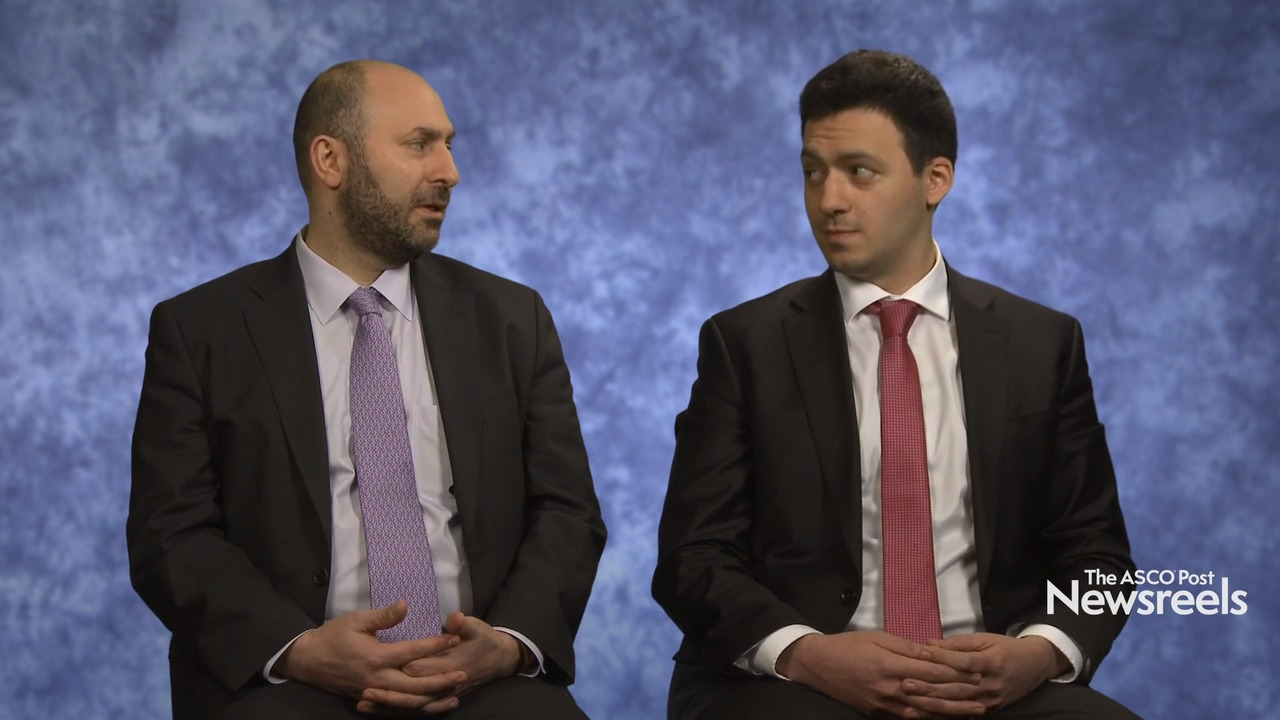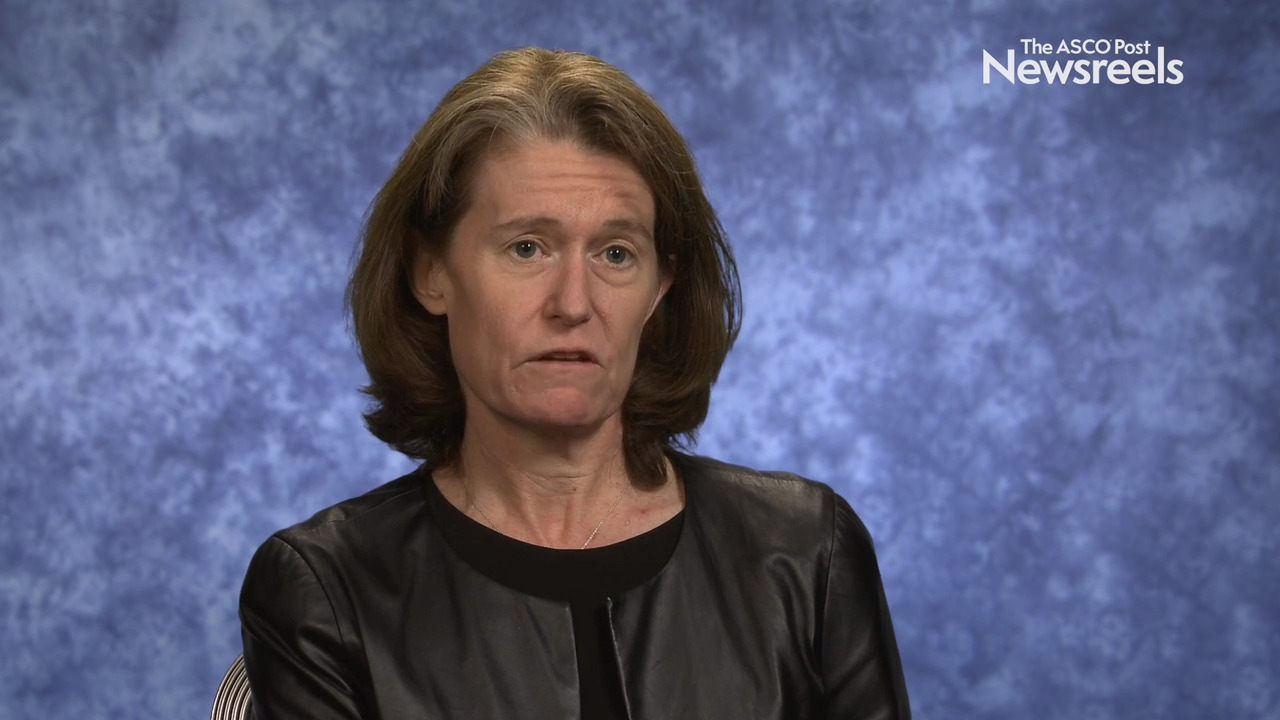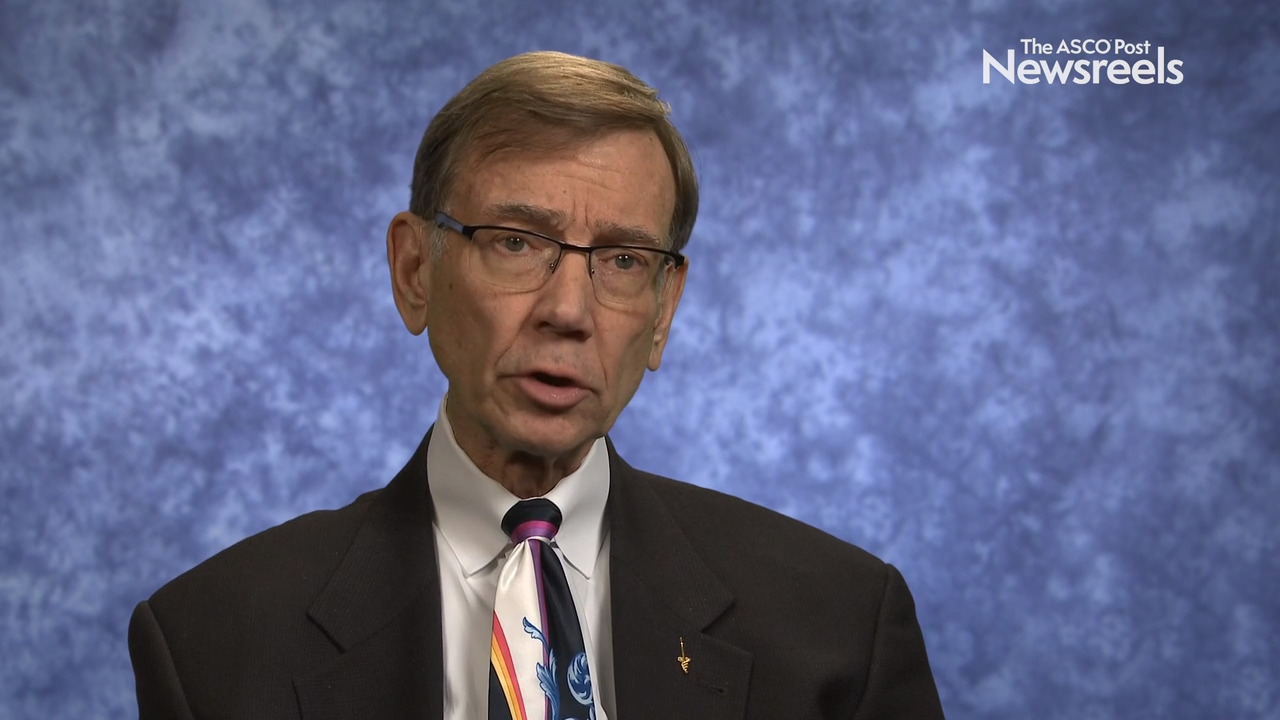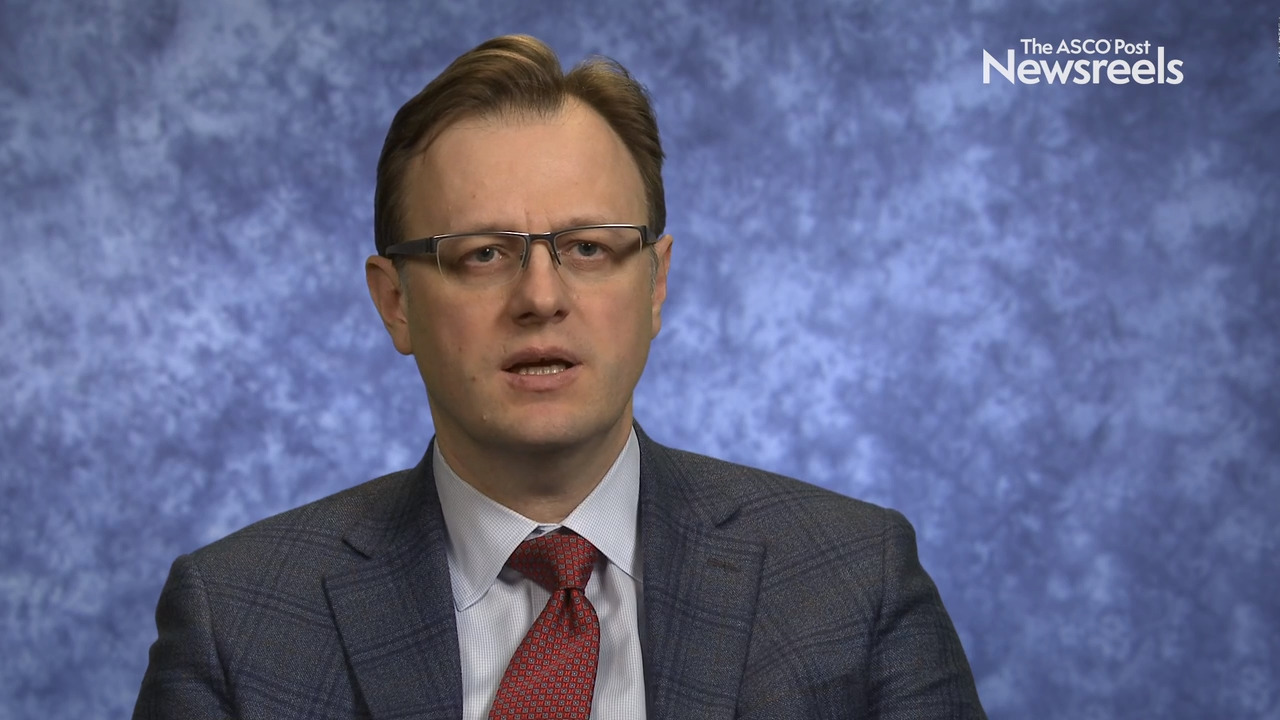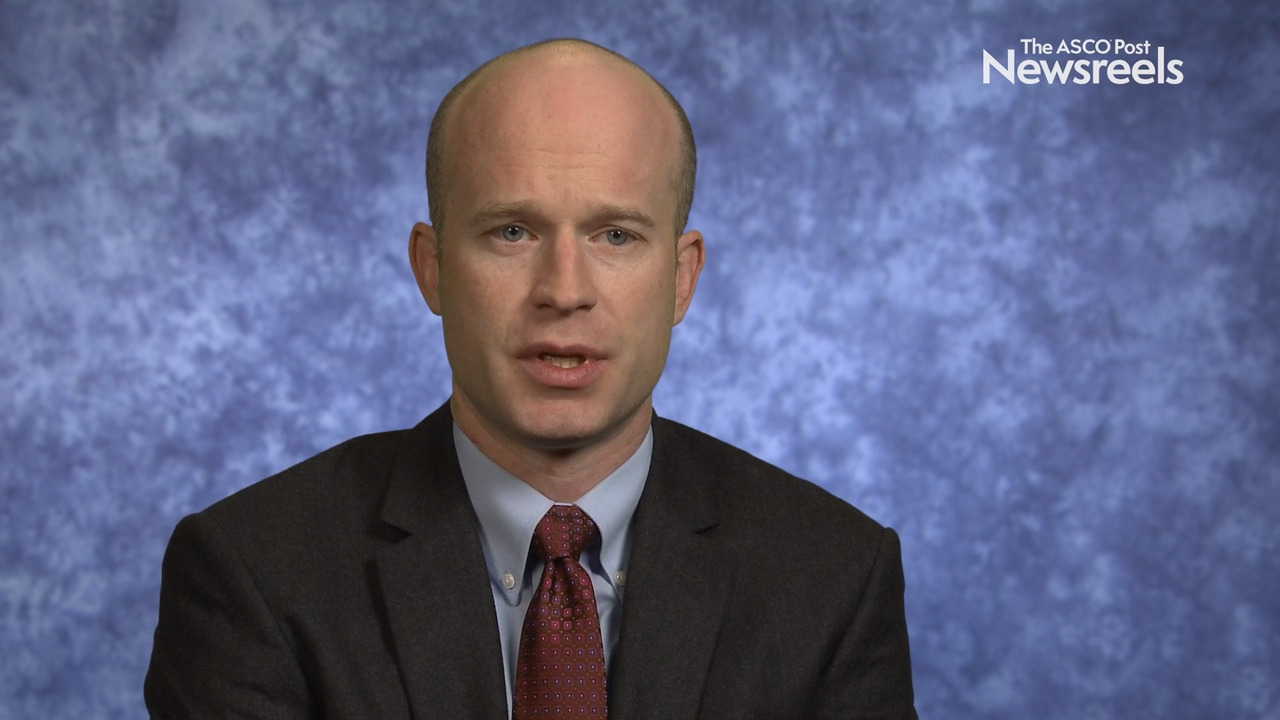Madhav V. Dhodapkar, MBBS, on Cancer Vaccines: Emerging Trends
2019 ASCO-SITC Clinical Immuno-Oncology Symposium
Madhav V. Dhodapkar, MBBS, of Emory University, summarizes a session he co-chaired on emerging approaches for vaccines, personalized/neoantigen vaccines, and mutation-targeted immunotherapy for diffuse midline gliomas.
Toni K. Choueiri, MD, and Ziad Bakouny, MD, both of Dana-Farber Cancer Institute, talk about novel cytokines, checkpoint inhibitors, and vaccines in the treatment pipeline for renal cell carcinoma.
Elizabeth A. Mittendorf, MD, PhD, of Dana-Farber Cancer Institute, discusses the encouraging data on atezolizumab plus nab-paclitaxel in the first-line setting for metastatic triple-negative breast cancer, and the potential benefits of combining immune checkpoint inhibitors with targeted treatment in breast cancer.
Nicholas Vogelzang, MD, of the Comprehensive Cancer Centers of Nevada, discusses phase Ib/II findings on pembrolizumab and lenvatinib given to 20 patients with metastatic transitional cell carcinoma of the bladder who had received no prior checkpoint inhibitor therapy (Abstract 11).
Stefan O. Ciurea, MD, of The University of Texas MD Anderson Cancer Center, discusses the enhanced antitumor effect and lower viral reactivation that result from high doses of natural killer cells infused after haploidentical transplantation, with no excess graft-vs-host disease, a low relapse rate for high-risk acute myeloblastic leukemia, and a low incidence of viral reactivation (Abstract 74).
G. Travis Clifton, MD, of Brooke Army Medical Center, discusses phase IIb trial findings on nelipepimut-S plus GM-CSF with trastuzumab vs trastuzumab alone to prevent recurrences of high-risk, HER2 low-expressing breast cancer (Abstract 1).
